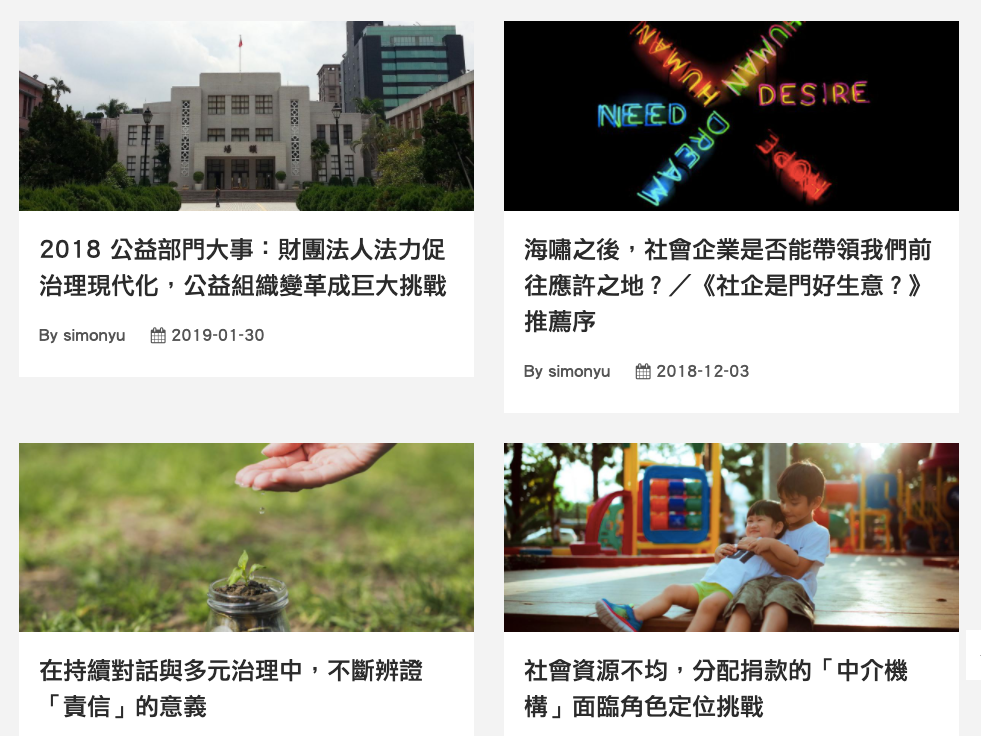One of the important goals of establishing the RC Culture and Arts Foundation is to promote an open culture. The association's mission, in addition to opening up the government, also includes advocating for financial transparency and accountability of NP(G)Os. In the past, many NP(G)Os believed that they had fulfilled their obligation of public disclosure by obtaining accountant certification and publishing their balance sheet, income statement, and cash flow statement. However, in many social controversies involving NP(G)Os in the past, the fact is that certification and disclosure of financial statements were not enough to respond to public doubts, and the focus remained on the so-called "accountability and trustworthiness" as a two-way communication rather than one-way clarification.
The establishment of the Association of Philanthropic Accountability may not have a glamorous beginning, but it is an important cornerstone for constructing a rational society. The association aims to interpret the financial statements of NP(G)Os, to present their finances in line with their governance, and to achieve effective communication with donors and the public. We speculate that such goals may not receive social donations in the short term, even if the association holds presentations of its achievements, as it is similar to urban sewage engineering, which is not a visible glory of the city but is undoubtedly a sign of its civilization. However, being a partner for the association during its lonely times is our honor.

Support for the Association of Philanthropic Accountability, as always, goes beyond just donating and also constantly seeks out "difficult questions" for it. We consider "cheap justice" as using others' problems to prove that we outshine others. However, the training in corporate management ultimately proves that concrete examples must be presented. So, when TFT (Teach for Taiwan) gradually became a large-scale operation, it was matched with the Association of Philanthropic Accountability in the hope of discussing and presenting what the stakeholders care about in terms of transparency reports and financial communication that are easily understood by the general public, with TFT as the topic. Even though we dare not say that we have reached the end, we are certainly on track because we are demanding donors.




